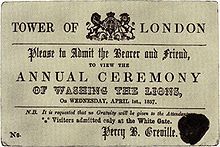“Punting the Pundits” is an Open Thread. It is a selection of editorials and opinions from around the news medium and the internet blogs. The intent is to provide a forum for your reactions and opinions, not just to the opinions presented, but to what ever you find important.
Thanks to ek hornbeck, click on the link and you can access all the past “Punting the Pundits”.
Follow us on Twitter @StarsHollowGzt
Paul Krugman: Lessons From a Comeback
Modern movement conservatism, which transformed the G.O.P. from the moderate party of Dwight Eisenhower into the radical right-wing organization we see today, was largely born in California. The Golden State, even more than the South, created today’s religious conservatism; it elected Ronald Reagan governor; it’s where the tax revolt of the 1970s began. But that was then. In the decades since, the state has grown ever more liberal, thanks in large part to an ever-growing nonwhite share of the electorate. [..]
A dozen years ago, the state was supposedly doomed by all its environmentalists. You see, the eco-freaks were blocking power plants, and the result was crippling blackouts and soaring power prices. “The country’s showcase state,” gloated The Wall Street Journal, “has come to look like a hapless banana republic.”
But a funny thing happened on the road to collapse: it turned out that the main culprit in the electricity crisis was deregulation, which opened the door for ruthless market manipulation. When the market manipulation went away, so did the blackouts.
Thomas Homer-Dixon: The Tar Sands Disaster
IF President Obama blocks the Keystone XL pipeline once and for all, he’ll do Canada a favor.
Canada’s tar sands formations, landlocked in northern Alberta, are a giant reserve of carbon-saturated energy – a mixture of sand, clay and a viscous low-grade petroleum called bitumen. Pipelines are the best way to get this resource to market, but existing pipelines to the United States are almost full. So tar sands companies, and the Alberta and Canadian governments, are desperately searching for export routes via new pipelines.
Canadians don’t universally support construction of the pipeline. A poll by Nanos Research in February 2012 found that nearly 42 percent of Canadians were opposed. Many of us, in fact, want to see the tar sands industry wound down and eventually stopped, even though it pumps tens of billions of dollars annually into our economy.
The revised GDP data for the fourth quarter released yesterday showed the profit share of corporate income hitting 25.6 percent. This is the highest since it stood at 25.8 percent in 1951. However if we look at the after-tax share of 19.2 percent, we would have to go back to 20.8 percent share in 1930 to find a higher number, excepting of course the 19.3 percent number hit last year.
To put this in context, the after-tax profit share was just 14.5 percent in Reagan’s Morning in America days. The difference would have come to roughly $330 billion last year. To put this in the 10-year budgetary window that is the standard framework in Washington these days, the rise in after-tax corporate profits since the Reagan era can be seen as equivalent to a $5.0 trillion tax on the nation’s workers.
This surge in profits in a weak economy (profits tend to move with the cycle) is striking but readers of the Washington Post version of AP piece on the data wouldn’t know anything about it. This piece includes no mention of the jump in corporate profits in 2012.
Robert Kuttner: Looking Backwards
Jubilant Republicans took back the Senate in yesterday’s mid-term election, and appeared to have increased their majority in the House by about ten seats.
“Barack Obama is now the lamest of lame ducks,” said Sen. Mitch McConnell of Kentucky, now the Majority Leader, who held on to his own Kentucky seat by about three percentage points, the Senate Republicans only close call of the evening.
“The Senate numbers this year were against the Democrats,” said pollster Stan Greenberg, “but what really killed us with the voters was the economy.” [..]
“This fiasco, once again, is why I don’t call myself a Democrat,” said Vermont independent Senator Bernie Sanders. “Don’t progressives get even one party?”

 On this day in 1700,
On this day in 1700,
Recent Comments